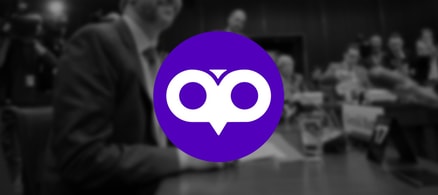Why pay off your balance in full?
You’ll have a better TPR
When determining your credit score, both TransUnion and Equifax are now starting to consider how much you pay over your minimum. TransUnion is calling this the Total Payment Ratio (TPR), and they calculate it by dividing your total monthly credit payments by the total minimum due across all your credit products.
The reason this metric is important for the credit bureaus is that their research has shown that a lower TPR correlates with a higher risk of delinquency on credit. If you go above your minimum payment and improve your TPR, your credit score will go up and you’ll get better interest rates on credit cards, auto loans and mortgages.
You’ll have a better credit utilization ratio
Your ‘credit utilization ratio’ measures how much debt you carry in relation to your credit limit. So if you have a $3,000 credit limit on all your cards combined, and carry $1200 of combined debt on said cards, your utilization ratio is 40%.
The utilization ratio is one of the most important factors in determining your credit score, and it’s generally recommended not to have a utilization ratio above 30%. So, even if you can’t pay off your balance entirely, pay it down as much as you can in order to get below that utilization threshold.
You’ll pay less overall
When you pay off credit cards fast, you’re doing more than just improving your credit score. You’re also reducing the debt you’ll accumulate long term.
The average Canadian owes about $8,500 in consumer debt (all debts sans mortgages). For every month that you carry a balance on your credit card, that balance grows because interest is added. Depending on the size of your balance, making the minimum monthly payment might mean only paying off part of the interest itself, while leaving the principle to keep accruing more and more interest from month to month.
You’ll live a better, less stressful life
The stress of living with debt is real and often underestimated by borrowers. Debt-related stress can lead to higher blood pressure, anxiety, insomnia, and loss of appetite, among other symptoms. And people who struggle with debt are more likely to suffer from clinical depression and suicidal ideation.
You might experience temporary gratification by diverting money from your credit card payments and using it for recreational, non-essential expenditures. But short-term pleasure isn’t worth the long-term toll on your mental and physical well being. If you’re making only the minimum payment, try to cut down on your monthly expenses by 10% and divert that money to paying above the minimum on your credit card. Once you’re in a financial position to pay off your card(s) in full each month, take the next step toward financial health by depositing every month into a savings account.
Should you ever make only the minimum payment?
Despite all the convincing reasons to pay off your balance each month, there are a select few circumstances in which it might make fiscal sense to make only the minimum monthly payments on credit cards:
You’re not at risk of going over the 30% credit utilization ratio
If the limits on your credit cards are high enough, carrying a small balance from month to month might not push you over a 30% utilization ratio. Keep in mind that credit bureaus assess your utilization ratio by looking at your card balance on the day your credit card statement is issued each month. Making payments before the statements are issued can keep your utilization low in the eyes of the bureaus.
Your card has a low interest rate
Most credit cards with lucrative rewards and cash back also have interest rates in the neighborhood of 20-25%. But if you have a more basic credit card with a relatively low interest rate, or if you’re still in the 0% promotional interest rate period for a new card, your balance might not grow significantly from month to month as long as you spend responsibly.
You need to keep some cash handy for emergencies
In the event of an unexpected crisis, divert the cash you would use to pay off your credit card and resolve the problem that’s immediately in front of you. Paying off your card balance each month is a sound financial goal, but it shouldn’t be prioritized over your more immediate housing, health or safety needs.
You have multiple debts with various interest rates
If you have more than one credit card, or if you have credit cards and other forms of debt (e.g. personal loans), you should prioritize paying off the debt with the highest interest rate first. It might feel good to pay off two credit cards with 10% interest rates, but don’t take care of those at the expense of a loan with a 23% interest rate.
If you fall into one of the above categories, periodically re-evaluate your budget to see if you can move away from making the minimum payment and start paying off credit cards in full. If your credit cards and loans have high interest rates, consider transferring all the balances onto one card with a low interest rate. Just note that the low interest rate on a balance transfer card will likely expire after a period of time—typically within 6 months to a year. Use the window of time afforded to you by a balance transfer to make the biggest possible monthly payments you can, pay off your credit card debt in full, and start your financial life fresh.


